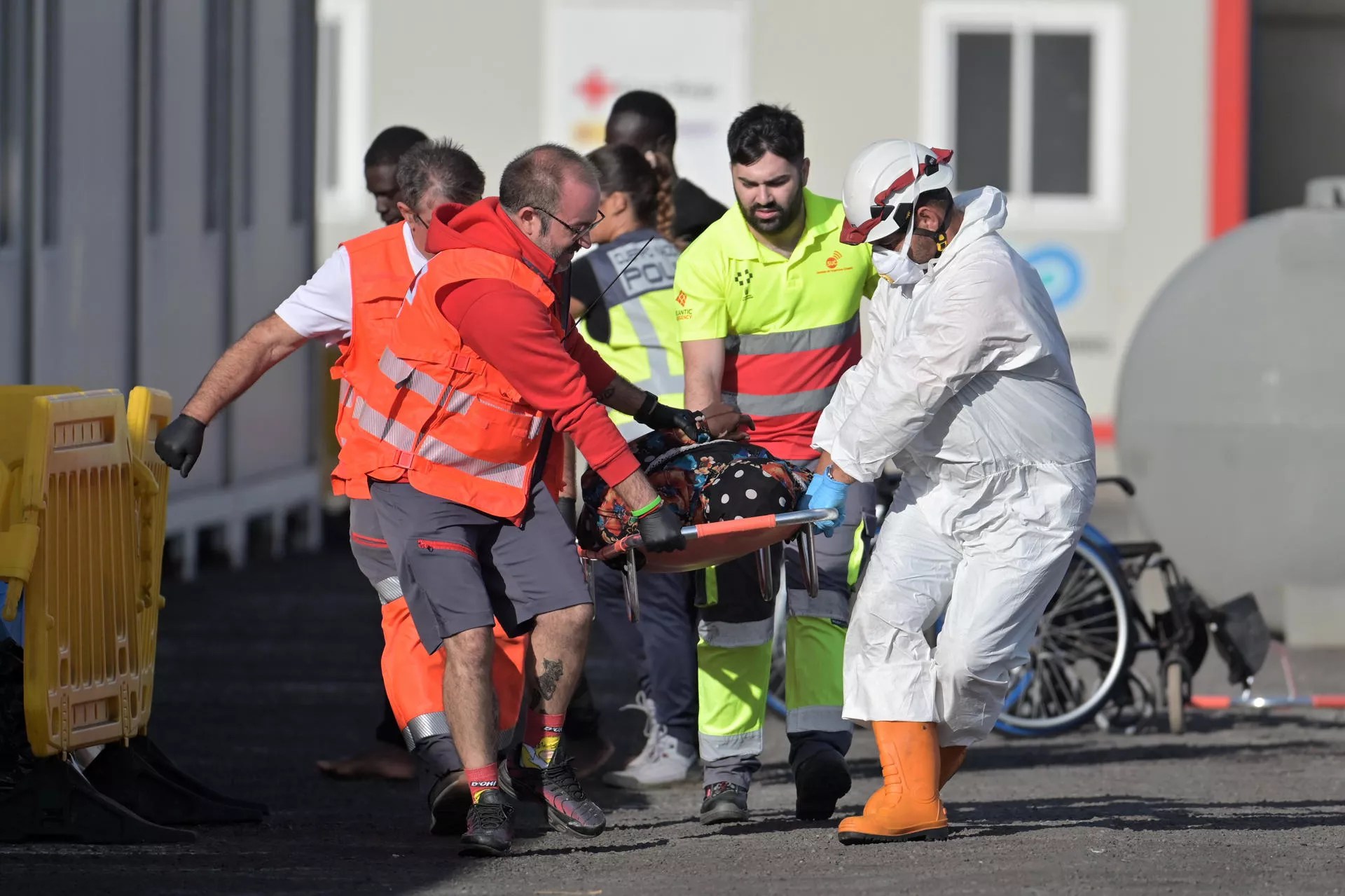The president of the Cabildo de Tenerife, Rosa Dávila (Canarian Coalition), stated on Monday that the far-left is “behind” the protests that took place on Sunday across the streets of Santa Cruz de Tenerife (and the other islands) against the prevailing development model centred on mass tourism. According to her, there is an effort to “exploit” this movement and “activism”.
In an interview with COPE CANARIAS, as reported by Europa Press, Dávila mentioned that the public “does not desire radicalism” and stated that after the recent elections, “they have been placed where they were, outside the institutions.” It is noteworthy that the PSOE was the most voted party in the regional elections as well as in the Cabildo de Tenerife and Santa Cruz de Tenerife City Council. Meanwhile, the parties Podemos and Drago collectively received nearly 60,000 votes in the regional elections but failed to gain representation due to the distribution dictated by Canarian electoral law. Conversely, ASG, with merely 6,000 votes, secured three seats, while another party gained a seat with only 1,600 votes. Together with PP and CC, they formed a parliamentary majority, though in terms of votes, the left-centre bloc emerged victorious.
Rosa Dávila has faced significant criticism during the demonstrations in Tenerife. Her image appeared on numerous banners, with terms such as “troll” and “liar” prominently featured.
“It cannot be permitted for these radicals to govern us from the streets as I believe the public will not comprehend this,” she asserted, defending a “silent majority” that cast their votes two years ago, which resulted in a “solid government” in Tenerife composed of 18 councillors. Dávila is echoing a message reminiscent of Mariano Rajoy’s approach in 2012, suggesting that those who abstain from protests inherently support her policies.
Dávila clarified that she did not attend the demonstration and disqualified discussions within the Flower Pact, saying, “There was no talk of ecotasa, there was no mention of dumping, nor discussions of tourist rates, nor deliberations on enhancing living conditions for residents.” It must be acknowledged that this period saw the impacts of the Covid Pandemic and the La Palma volcanic eruption.

Now, drawing on the “responsibility” of the Cabildo, she pointed out that her party (CC) has initiated a conversation regarding the implementation of a tourist tax for overnight stays, a practice already in place in numerous global destinations. However, she has not clarified why, a mere 24 hours prior to suggesting the ecotasa (just two weeks earlier), she voted against the PSOE’s proposal to establish it. Essentially, she opposed a measure she later proposed. Furthermore, it is important to note that her proposal lacks the backing of her government partner, the PP, which has already declared its intention to vote against it.
“We listen to citizens, all of them, including those who come with a cauldron making a commotion, but also the broader community that expresses concern regarding the need for a fairer distribution of wealth derived from tourism,” she remarked.
The president of Tenerife has specified that residents “should not be liable” for that tax and has championed the “regenerative tourism” model which, according to her, the insular corporation supports. This includes charging fees for access to natural areas, as already practised in Masca and soon to occur at the peak of Teide. It is relevant to note that, under her administration, at least two projects have been approved to enhance areas that currently lack development, such as the Underwater Gardens project aimed at constructing a coastal theme park in southern Tenerife, or the ongoing works to establish a restaurant and a parking facility for 60 vehicles at the Teno lighthouse.
Dávila, who has yet to reopen Playa Jardín (closed for nearly a year due to spills), has asserted that an unprecedented investment in purification systems and desalination facilities is essential, with the aim of achieving zero spills. However, in recent days, up to six beaches on the island have been forced to close due to the presence of faecal bacteria, resulting in the loss of several blue flags for the island.
He further remarked that both his political faction and the regional government are engaged in a “very bold discussion” at the EU regarding the potential establishment of a residency law, considering that Tenerife, for instance, gains approximately 12,000 inhabitants annually, necessitating additional infrastructure and services.
Dávila has also mentioned the need to recognise that one cannot continuously expand the number of tourists to an “infinite” degree on an island that already hosts over six million visitors. He emphasised the necessity to focus on higher-quality tourism, prioritising expenditure over sheer volume.
















